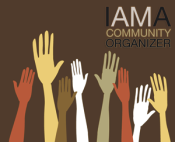as a letter to the editor.
It’s hard to think of a more wasteful way to spend tax dollars than locking up marijuana users. But, in the midst of a budget crisis, this is exactly what Alabama is doing.
 Your legislators could change that. Alabama is already taking a serious look at its sentencing practices — but they need some encouragement. So please, ask them to get their priorities straight and to support sentencing reform. Please urge legislators to introduce legislation to stop wasting money and ruining lives by incarcerating people for possessing marijuana.
Your legislators could change that. Alabama is already taking a serious look at its sentencing practices — but they need some encouragement. So please, ask them to get their priorities straight and to support sentencing reform. Please urge legislators to introduce legislation to stop wasting money and ruining lives by incarcerating people for possessing marijuana.There are clear harms entailed in the practice of putting lots of unenforceable or unenforced laws on the books and consigning a significant swathe of your population to the category of “lawbreakers”. On the one hand, this promotes contempt for the law. On the other hand, it allows police and government to lock up many people at will, since most people are always violating some law or another, and that’s a discretionary power that governments tend to abuse for repressive political purposes.
The government also derives extortionary power from its ability to lock people up at will, which leads to corruption. In autocratic countries across a wide spectrum of development, from Guinea to Russia, you tend to find all of these things occurring together: a broad range of normal economic and political behavior is criminalized, the citizens treat the law as an arbitrary set of irritating technicalities to be evaded, government uses police powers to repress political opposition, and police and government officials make their living by shaking people down.
Parts of this syndrome (criminalizing normal behavior, contempt for the law, shaking people down) also describe the way drug laws function in much of America. So the question arises of whether we should legalize pot. Sarah Palin recently said we shouldn’t, but that marijuana use isn’t much of a problem–and should be a low priority for law enforcement.
What I think what we’re seeing here is the wrong-headed notion that an appropriate way to express disapproval of a behavior is to simply make it illegal, but then wink and nod on enforcement as if this is some sort of middle ground.
If you don’t think a law should be enforced, you should support repeal of the law. All “compromise” accomplishes is granting police almost unfettered discretion. If smoking pot is still technically illegal, police can enforce the law when they choose, targeting certain people for arrest while turning a blind eye to others engaging in the exact same activity.
I’ve now learned in some of those foreign countries that are famously tolerant of drug use, it turns out that “tolerant” is the operative word. For example, while there are periodic calls in the Netherlands to move to complete legalization of soft drugs, that initiative never seems to get anywhere. But neither do calls for actual prosecution of marijuana possession and use.
So while the Netherlands, Denmark, and so forth are among the countries that court public contempt for the law and repressive police practices by keeping marijuana use illegal, they also keep the “lawbreakers” unpunished in practice. And yet these countries have failed to turn into Russia. I think what we’re seeing in the United States is the impact of a national political culture shaping the practices of governance over other national social institutions when it comes to drug laws here.
It would be nice if we could arrive at an ethically and logically consistent legal stance on drug use, but it may be that in practice that’s very hard to do, and not actually very important. Basically, while Sarah Palin’s position on this issue, as on many others, is semi-deliberately incoherent, it is in this case a semi-deliberate incoherence that has proven to be effective policy in many countries, and it might be the stance to begin on the issue in the United States.
Pastor Kenneth Glasgow
Founder, Executive Director
The Ordinary People Society (TOPS)
403 West Powell St. Dothan, AL 36303
Office / Fax: 334-671-2882
Cell: 334-791-2433






No comments:
Post a Comment